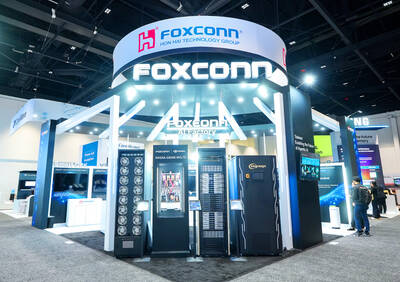The switch by the nation's carriers to Tokyo's expanded Narita Airport today will contribute to a cut in annual revenue for China Airlines Co (
Japan's international gateway, 80km from downtown Tokyo, opened 25 years ago with only a single runway because of disputes with local farmers. The new landing strip will be too short for bigger, long-range planes because of the spat.
While capacity will expand with the new runway, the allocation of the new landing slots favors regional carriers serving shorter routes in Asia, cutting the slot share of US airlines to Narita to 30 percent from 34 percent.
However, in switching to Narita from Haneda Airport from today, EVA Airways Corp (長榮航空) will see its slots jump from two to 14 per week, while arch rival China Airlines will only gain one extra flight shifting to 22 per week.
EVA and China Airlines are the only international airlines to fly into Haneda due to political pressure from China after Japan switched diplomatic recognition to Beijing.
The weekly aviation magazine Flight International reported earlier this month that increased competition from domestic rival EVA and other regional airlines along the new Taiwan-Japan route and a reconfigured route between Hong Kong and Taiwan would eat into company revenue.
As a new air deal between Hong Kong and Taiwan is expect to grant EVA up to 35 of the 45 to 49 new flights to the Chinese territory.
China Airlines, which has dominated the route along with Cathay Pacific (國泰), will again see a chunk taken out of its revenue, Flight International reported.
The Hong Kong route accounts for almost 20 percent of China Airlines' profit.
China Airlines won't be the only carrier to feel the effects of expanded capacity at Narita. US airlines are also facing revenue challenges as regional carriers were favored when landing slots were allocated.
``We originally requested two extra slots a day but we only got one, so you can say we aren't satisfied with the result,'' said Hideki Isayama, a spokesman for United Airlines Inc, last month.
United Airlines will emerge with a 7.4 percent share of the slots, or 224 flights a week, after the new runway opens, down from 8.5 percent now.
Northwest Airlines Corp, the biggest of the US carriers flying to Narita, will see its share of slots shrink 2 percentage points to 11 percent, or 350 flights a week.

Anna Bhobho, a 31-year-old housewife from rural Zimbabwe, was once a silent observer in her home, excluded from financial and family decisionmaking in the deeply patriarchal society. Today, she is a driver of change in her village, thanks to an electric tricycle she owns. In many parts of rural sub-Saharan Africa, women have long been excluded from mainstream economic activities such as operating public transportation. However, three-wheelers powered by green energy are reversing that trend, offering financial opportunities and a newfound sense of importance. “My husband now looks up to me to take care of a large chunk of expenses,

SECTOR LEADER: TSMC can increase capacity by as much as 20 percent or more in the advanced node part of the foundry market by 2030, an analyst said Taiwan Semiconductor Manufacturing Co (TSMC, 台積電) is expected to lead its peers in the advanced 2-nanometer process technology, despite competition from Samsung Electronics Co and Intel Corp, TrendForce Corp analyst Joanne Chiao (喬安) said. TSMC’s sophisticated products and its large production scale are expected to allow the company to continue dominating the global 2-nanometer process market this year, Chiao said. The world’s largest contract chipmaker is scheduled to begin mass production of chips made on the 2-nanometer process in its Hsinchu fab in the second half of this year. It would also hold a ceremony on Monday next week to

State-run CPC Corp, Taiwan (CPC, 台灣中油) yesterday signed a letter of intent with Alaska Gasline Development Corp (AGDC), expressing an interest to buy liquefied natural gas (LNG) and invest in the latter’s Alaska LNG project, the Ministry of Economic Affairs said in a statement. Under the agreement, CPC is to participate in the project’s upstream gas investment to secure stable energy resources for Taiwan, the ministry said. The Alaska LNG project is jointly promoted by AGDC and major developer Glenfarne Group LLC, as Alaska plans to export up to 20 million tonnes of LNG annually from 2031. It involves constructing an 1,290km

NEXT GENERATION: The company also showcased automated machines, including a nursing robot called Nurabot, which is to enter service at a Taichung hospital this year Hon Hai Precision Industry Co (鴻海精密) expects server revenue to exceed its iPhone revenue within two years, with the possibility of achieving this goal as early as this year, chairman Young Liu (劉揚偉) said on Tuesday at Nvidia Corp’s annual technology conference in San Jose, California. AI would be the primary focus this year for the company, also known as Foxconn Technology Group (富士康科技集團), as rapidly advancing AI applications are driving up demand for AI servers, Liu said. The production and shipment of Nvidia’s GB200 chips and the anticipated launch of GB300 chips in the second half of the year would propel